Entry Category: Race - Starting with W
Wair, Thelma Jean Mothershed
Walker, John Winfred
Walker, William “Sonny”
Wallace, John (Reported Lynching of)
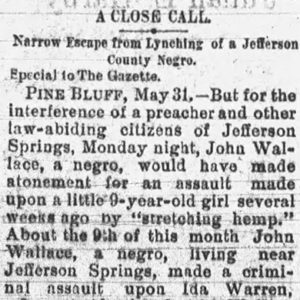 John Wallace Lynching Article
John Wallace Lynching Article
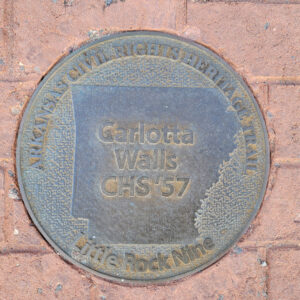 Walls Marker
Walls Marker
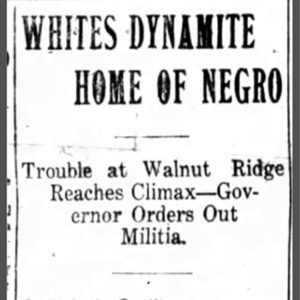 Walnut Ridge Race War Article
Walnut Ridge Race War Article
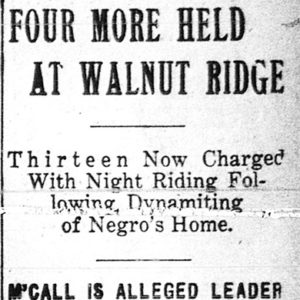 Walnut Ridge Race War Article
Walnut Ridge Race War Article
Walnut Ridge Race War of 1912
Ware, Ed
Ware, Jim and Jack (Lynching of)
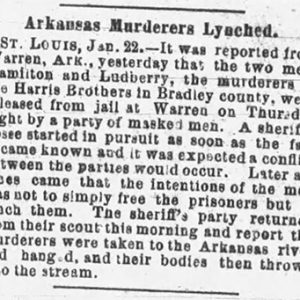 Warren Story
Warren Story
Warren, Nathan
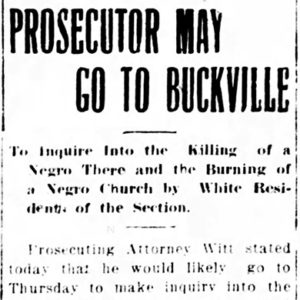 Warren Lynching Article
Warren Lynching Article
Warren, Will (Lynching of)
Washington County Lynching of 1856
aka: Randall (Execution of)
Washington County Lynching of 1860
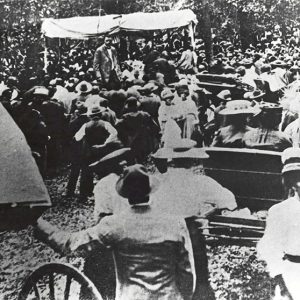 Booker T. Washington
Booker T. Washington
Washington, George (Lynching of)
Watson, Hattie Rutherford
aka: Harriet Louise Gertrude Rutherford Watson
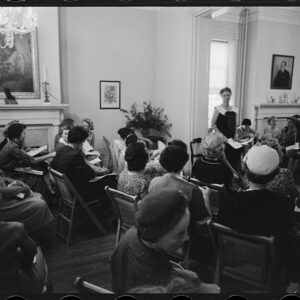 WEC Meeting
WEC Meeting
Wells, Elias (Lynching of)
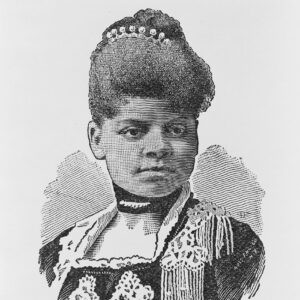 Ida B. Wells
Ida B. Wells
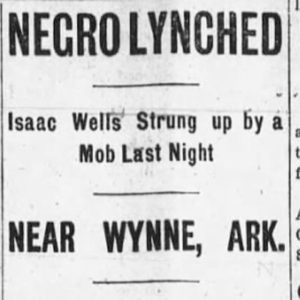 "Isaac" Wells Lynching Article
"Isaac" Wells Lynching Article
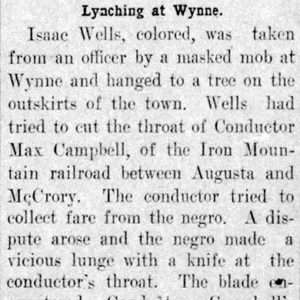 "Isaac" Wells Lynching Article
"Isaac" Wells Lynching Article
West, John (Lynching of)
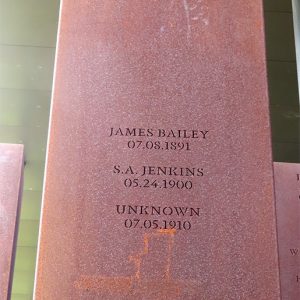 White County Lynching
White County Lynching
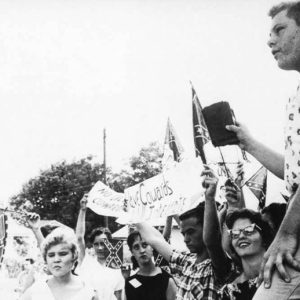 White Protesters
White Protesters
 White Protesters
White Protesters
White Revolution
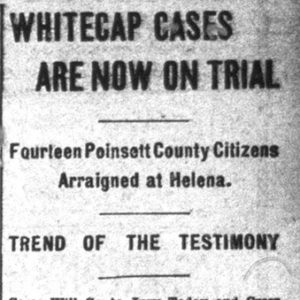 Whitecap Article
Whitecap Article
Whitfield, Ed
Wiley, Bill (Lynching of)
William (Lynching of) [1836]
William (Lynching of) [1846]
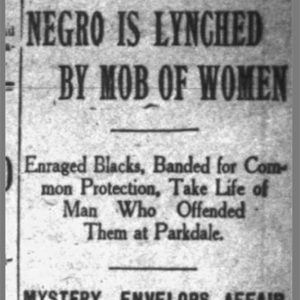 Ernest Williams Lynching Article
Ernest Williams Lynching Article
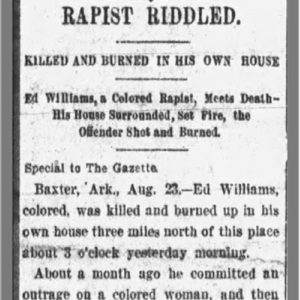 Edward Williams Lynching Article
Edward Williams Lynching Article
 Williams Park
Williams Park
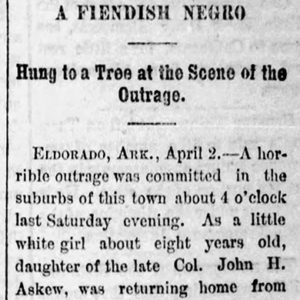 Albert Williams Lynching Article
Albert Williams Lynching Article
Williams, Albert (Lynching of)
Williams, Ernest (Reported Lynching of)
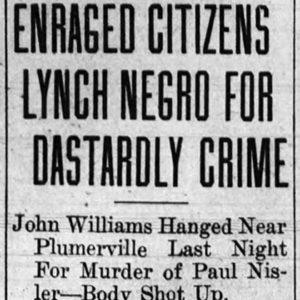 John Williams Lynching Article
John Williams Lynching Article
Williams, John (Lynching of)
Williams, Leonard Lee (Killing of)
Williams, Samuel Woodrow
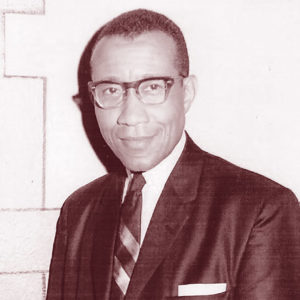 Samuel Williams
Samuel Williams
Williams, Sue Cowan
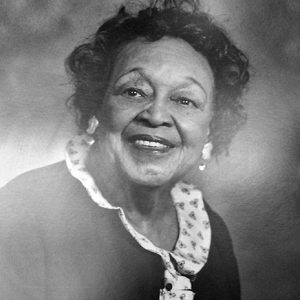 Sue Cowan Williams
Sue Cowan Williams
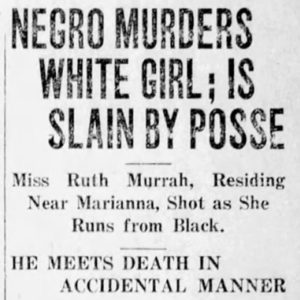 Alexander Wilson Lynching Article
Alexander Wilson Lynching Article




